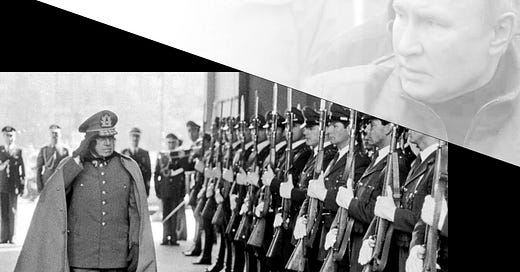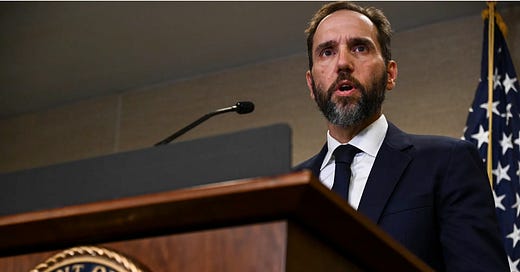
Orban: The Strongman Made in America and Hungary
Right-wing US PR firms and consultants helped to create the "Orban" persona and his enemy "Soros"
"The globalists can all go to hell, I have come to Texas," declared Hungarian Prime Minister Viktor Orban in August 2022 at the CPAC meeting in Dallas. He received a standing ovation for his strongman performance in which he presented his country as "the last man standing" against a cabal of liberals, communists, puppets of George Soros, and other enemies of Western civilization and freedom.
That is fitting, given that the "Orban" of 2022 --the political animal who showed up at Dallas--is, in part, an American creation.
As I wrote in an MSNBC essay, ideological similarities between Orban and the GOP drive the Republicans' periodic pilgrimages to Budapest to see his “illiberal democracy” in action first-hand. With Russian President Vladimir Putin toxic for many due to his terrorist war on Ukraine, Orban markets himself as the "acceptable autocrat" who is
Having lost reelection as Prime Minister in 2002 to a Socialist coalition, Orban embarked on a journey of reinvention that in 2008 brought him to Arthur Finkelstein, a Republican political consultant who worked with Ronald Reagan, North Carolina Senator Jesse Helms, Richard Nixon, and Benjamin Netanyahu, specializing in campaigns that sparked anger and fear in voters and polarized the electorate. No matter if, as in the case of Netanyahu, this involved disseminating lies (alleging that his opponent Shimon Peres would divide Jerusalem if elected).
In 2008, Netanyahu introduced Orban to Finkelstein, who, along with his protege, George Birnbaum, created "George Soros,” turning the billionaire democracy defender into an all-powerful exploiter and predator. This gave popular anxieties about globalization a focus and a face - someone to hate. Two years later, Orban was back in power. "George Soros," an antisemitic creation of two American Jews, has helped him to stay there ever since.
U.S. and UK lobbyists, consultants, and public relations firms have been crucial to the development of authoritarianism, as Sarah Posner reported in 2019 and a 2021 book by Alexander Dukalsis reminds us. I trace this history in Strongmen, up to Trump's associations with Paul Manafort and Roger Stone, who had worked for dictators Mobutu Sese Seko and Ferdinand Marcos.
This boost from American consultants and media figures is especially important for leaders like Orban, who have outsized ambitions and yet govern countries seen as marginal. Orban is fortunate that the powerful Carlson family backs his quest to make Budapest an indispensable hub of far-right networks. It's well known that Tucker Carlson, host of the highest-rated Fox News program, has boosted Orban repeatedly as a model leader, broadcasting for an entire week from Budapest. Carlson's father, Richard Carlson, is a director at Policy Impact Communications, which promoted Orban in the U.S. up through 2018.
Orban is likely a dream client for Americans, given his skill at manipulating public opinion. Take a recent episode that captured world media attention. Ten days before his trip to the United States, Orban spoke to a youth group in Hungary, escalating his habitual anti-immigrant and racist talk about protecting White Hungarian births from decline into fascist territory. "We do not want to become peoples of mixed-race," he declared.
During the controversy that followed, Orban's longtime advisor Zsuzsa Hegedus resigned, calling his remarks on race "a Nazi diatribe" "worthy of Goebbels." This gave Orban the opportunity to claim in a public response to her that he had "zero tolerance" for racism and anti-Semitism - a bald lie, but effective rhetoric. In the end, Hegedus withdrew her resignation, apologizing to Orban publicly. She is back working for him.
Such reversals form part of the logic of authoritarianism: There is no place for critics in the inner circle of a despot. Yet Hungary expert Kim Scheppele Lane's warning that the whole episode may have been staged, given Orban's upcoming performance for a party associated with racial segregation, is valid. She asks why Orban picked this moment to use language that was new for him and that he knew would create outrage.
Never underestimate Orban's ability to be what his audience --foreign or domestic-- needs him to be in that moment. Orban, a former Communist turned far-right nationalist, has a good nose for where history is headed, and years of being counseled by American consultants are likely coming in handy. For now, Orban, a politician made in America as well as Hungary, is keeping his options open, in the best autocratic fashion.
















The embrace of autocrats and their autocratic gaslighting, by some, in this country, and in the world, is deeply disturbing, and alarming. Followers of Orban and the silent adherence to his line of authoritarianism displays an appalling lack of knowledge regarding history, and how autocrats rise to power. The fact that we still have, Trump, or a DeSantis continually “knocking on the door” for total control is frightening and not acceptable.
I was totally taken in by Zsuzsa Hegedus’ resignation, thinking that while she previously supported his autocratic policies, someone at last valued honor, courage and integrity more than a job. I was so wrong. That Republicans are embracing Orban is indeed alarming, along with continually fanning the flames of “fear of the other”. Appreciate your ongoing efforts to alert people to the very real dangers autocrats and authoritarians present to democracy both in the U.S. and abroad.